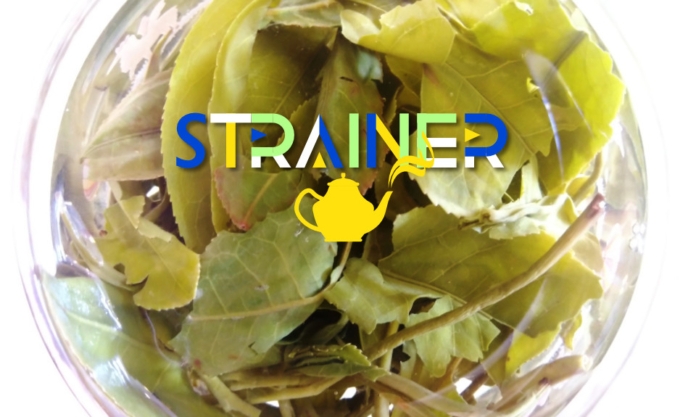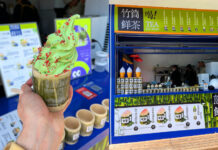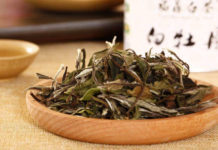By coincidence, I was recently drinking Yunnan Green tea anyway.
My favourite market-stall had been selling some. Yeah, it was cheap. And, despite the unpromising smell and ashen grey appearance, I was curious.
I had not bought any of this stuff while in Yunnan itself. I remember seeing it piled high in the market there, dusty, no effort towards preservation. “That’s not the way to treat green tea”, I thought. Moreover, the Yunnan sellers themselves told us not to buy it! Buy the pu er, they said; this can only by enjoyed by locals.
But the curiosity caught up with me, and I was able to finish my first batch, albeit infused with some citrus fruit, through this winter. The effects of oxidation are very apparent, tasting a bit like those abused gunpowder and hyson green teas which travel around the world to be drunk by so many self-punishing dieters. And the astringency is also very strong, reminding me of a raw pu er. I finished it, thanks partly to those lemons and limes.
And then, almost immediately, this gift.
Green Tea from Yunnan. This is from an artisanal producer. In fact, it’s from the exact same producer as the long-leaved, long-lasting, red tea I mentioned last year.
Compared with last month’s stuff, the appearance is more promising; more green, less grey. Coming from camellia sinensis assamica, like all Yunnan teas, the large plant leaves result in long, twisted tea leaves. And there are some white, downy buds, just like dianhong [滇红].
Again, some of that astringency is present here. In fact, I need to say that everything I disliked about my winter green tea is present, to a lesser degree, here. But what I liked is also much more pronounced, too.
It seems I write about sweet potatoes every time I write about Yunnan here in this column. They are one of the great discoveries of my Chinese life, enjoyable as dry chewy snacks, boiled breakfast fodder, fried as chips with a duck-egg coating or refined into noodles. Despite the lousy English name, they are much, much more than a novelty potato.
Sweet potatoes are sweet, but they’re also fruity (mango) and floral, with lavender and rose aromas starring. If, like me, you eat the skin of sweet potatoes, you’ll find tannins there. That astringency, as with a banana, is only unbearable at the tip, otherwise quite acceptable, quite pleasing.
Sweet potato leaves appear on some restaurant menus, and can be bought in markets too. They possess a similar astringency, as well as a similar sweetness. Really great veg.
These are exciting, grown-up sensations we’re discussing. And I want to say that this green tea is similar. Sometimes, the experience feels a little too close to that root tip, that volcano of astringency. Other times, it fascinates and rewards. Smile, inhale through the nose and feel the controlled explosion.
Oh, and I almost forgot to mention tobacco. It’s not just because of the flue-curing process that Chinese, mostly Yunnanese, cigarettes have such a distinctive, floral aroma. I’m reminded of that aroma in this green tea.
Yunnan truly is a tea heaven, and food heaven, too; our Yunnanese ayi brought us mind-blowing spicy pickles, as well as delicious mangoes. We may never again see her now she’s saved enough for a big house back home. We can’t blame her for returning to her husband, but we’ll miss her.
Thank goodness, then, for this friend of a friend who makes these great teas!












